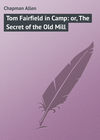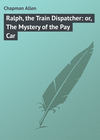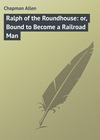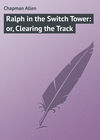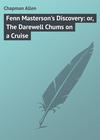Czytaj książkę: «The Heroes of the School: or, The Darewell Chums Through Thick and Thin»
CHAPTER I
EXPELLING A PUPIL
“What are you looking so glum about this morning, Stumpy?” asked Ned Wilding as he greeted his chum, Fenn Masterson, otherwise known as “Stumpy” because of his short, stout figure. “Haven’t you got your lessons, or are you going to be expelled?”
“I’m not to be expelled but some one else is, Ned.”
“What’s that? Some one going to be expelled?” asked Bart Keene, coming up in time to hear what Fenn said.
“John Newton is,” replied Stumpy.
“What’s that got to do with you?” asked Bart, for, as had Ned, he noticed that Fenn looked worried.
“It might have something to do with me if John – ”
Just then the bell of the Darewell High School began to ring, and, as it was the final summons to classes the three boys and several other pupils hurried into the building. On the way up the stairs Ned Wilding was joined by a tall youth with dark hair and eyes.
“What’s this I hear about John Newton?” asked the tall lad.
“Hello, Frank! Why Stumpy says John’s got to leave the school, but it’s the first I heard about it.”
“Are they going to expel him this morning?”
“Seems so. We’ll soon know.”
A little later several hundred boys and girls were gathered in the auditorium of the school for the usual morning exercises. When they were over the principal, Professor McCloud, came to the edge of the platform.
“I have a very unpleasant duty to perform,” he began.
Most of the boys and girls knew what was coming. The principal never prefaced his remarks that way unless he had to expel a pupil. Ned and Bart looked over toward where Fenn sat. They wanted to see if there was any reason for Stumpy’s seeming apprehension.
“John Newton!” called Professor McCloud, and a tall youth, with eyes that squinted slightly, left his seat and shambled forward.
“It’s coming now,” whispered Fenn, and Frank Roscoe, who was sitting beside him, looked at his chum and wondered.
“Any one would think it was you who had to face the music,” declared Frank.
By this time John Newton was standing in front of the raised platform on which the principal and teachers sat during the morning exercises. He did not seem to mind the humility or disgrace of his position. He turned half around and looked toward Fenn.
“If he says anything – ” began Stumpy, whispering to himself, but he did not finish the sentence for Professor McCloud was speaking.
“John Newton,” the principal said, “I am deeply grieved that I have to do this. It is very painful.” It was the same speech the pupils had heard before. The principal always used it, with such slight variations as might be necessary. “You have been dilatory in your studies. You have been insubordinate. You have played mean tricks. You have refused to mend your ways.”
The principal took a long breath. He always did at this particular point in his painful duty. But this time there was a variation from the usual scene. John Newton stepped forward and addressed the principal. It was a thing unheard of in the Darewell school.
“Professor McCloud,” said John, “I want to say that while I’m partly to blame in this matter, Fenn Mas – ”
“That will do! That will do!” interrupted Mr. McCloud so sharply that John started. A number of the pupils turned in their seats to gaze at Stumpy, who looked painfully self-conscious.
“There’s something in the wind,” whispered Ned to Bart.
“I’m not going to take all the blame,” persisted John, ignoring the principal’s command to remain silent. “Fenn Mast – ”
“I said that would do,” and Mr. McCloud spoke so decisively that John remained silent. “I know what you would say,” the professor went on. “I have looked into that matter thoroughly. No one is to blame but yourself, and your effort to shift the punishment to some other boy does not do you any good. You should not have attempted to mention any pupil’s name. I will not refer to it again, except to say that no one is involved but yourself. I am fully satisfied on this point.”
Frank noticed that Fenn seemed much relieved at the professor’s announcement, and he wondered what connection there could have been between his chum and John Newton.
“You have been given several opportunities to reform,” the principal went on, “but you have refused to profit by them. You are a dangerous element to have in this school. Therefore, we return you to your friends,” and, with a wave of his glasses toward the door to emphasize his remark, the principal indicated that John Newton might go. That ended it. John was expelled.
The pupils went to their various classes, and, though there was considerable whispering back and forth during the morning session as to what caused John’s expulsion, and what his reference to Fenn might mean, there was no chance to discuss the matter until the noon recess. Then questions and answers flew thick and fast.
“Now Fenn, tell us all about it,” said Ned Wilding when he and the two other boys who had remarked Stumpy’s apprehension, were gathered in the basement where lunches were usually eaten. “What was John driving at? What were you afraid of?”
“Didn’t you hear Professor McCloud say it was all ended and he was satisfied I had no hand in it?”
“Yes, but that doesn’t satisfy us,” said Bart. “We want the whole story.”
“There isn’t much to it,” Fenn declared. “You must promise not to repeat it.”
“We’ll promise but I guess John will tell it all over town,” said Frank.
“You know John and I used to be pretty friendly,” Fenn began, getting his chums off into a corner. “He lives near me and I used to go fishing with him once in a while. But he got down on me because I wouldn’t lend him my best reel one day, though for a while I didn’t know he wasn’t friendly.
“He’s always playing some kind of tricks in school, but most of ’em aren’t any worse than those we get up. But this last one was the limit.”
“What was it?” asked Ned.
“He’d been reading some book on India, and how they catch tigers by smearing bird-lime on the leaves near the water-hole. He made some of the lime. I helped him. Got some of the stuff from the laboratory. Then he put it all over the papers in Mr. McCloud’s desk, one night after school, and they got so fastened together they couldn’t be separated.”
“You don’t mean to say you helped him do that?” asked Frank.
“Who said I did? I only helped make the bird-lime. He told me we could catch rabbits with it. I didn’t know what he was up to or I wouldn’t have done that much. When he learned he was discovered, for he left his knife in the desk, he said he was going to make me take part of the blame for helping him make the lime. That’s what I was afraid of this morning, when I heard he was going to be expelled.”
“He did try to give you away,” interrupted Bart.
“Yes, rather mean, too. But it seems Mr. McCloud had been investigating, though I didn’t know it. He must have found out that I didn’t have any hand in putting the stuff in the desk, even if I did help John make it.”
“Lucky for you that he did,” commented Ned. “Do you think John will try to do anything more to make trouble for you?”
“I hope not,” Fenn replied.
“He was always up to tricks,” commented Frank. “Once he daubed tar on the bottoms of his shoes and walked through the classroom, leaving black marks all over. He pasted paper caps on the pestle when the chemistry class was going to recite and Professor Long thought the powder he was mixing went off at the wrong time.”
“Yes, and do you remember the time he whistled like a bird in school,” put in Ned, “and made the teacher believe a canary was loose somewhere. My, but he can whistle!” he went on. “He can do as well as some of the fellows on the stage. I’m sorry he got expelled, but I’m glad you’re out of it, Stumpy.”
CHAPTER II
THE WRONG SLIDE
The four boys spent some time discussing the affair of the morning, and speculating as to what John Newton would do now that he could no longer attend school.
“Guess he’ll not worry much,” remarked Fenn. “He was saying the other day he thought he’d go off somewhere and try to get work in the city.”
“Work? He’s too lazy to work,” put in Ned.
“He said he’d like to get a job in a theater,” Fenn added.
“Shoving scenery around, or being part of the mob in Julius Cæsar would be his limit, I guess,” said Bart.
“Speaking of Cæsar reminds me that Fenn fell down in his Latin this morning,” said Frank.
“Yes, I should have boned away on it last night but I didn’t,” admitted Stumpy.
“I know why,” put in Ned.
“Why?”
“Saw you out walking with Jennie Smith, and I s’pose you didn’t get in until late.”
“Did she recite poetry to you?” asked Frank, for Jennie was somewhat inclined to verse.
“Say you fellows dry up!” exclaimed Fenn. “You don’t dare walk with a girl. Don’t know how to behave in company!”
“It takes Fenn to please the girls,” retorted Ned, and he dodged to escape a blow Stumpy aimed at him. Then the gong rang for the afternoon session and the pupils went back to their classrooms.
While the boys are at their lessons, which is about the only time, save when they are asleep, that they are not talking or doing something, there will be opportunity of telling who they are.
Ned Wilding’s mother had been dead some years. His father was cashier in the only bank in Darewell, a thriving manufacturing town not far from Lake Erie. The Still river ran through the place and it was a journey of about ten miles to the lake on that stream.
Frank Roscoe lived with his uncle Abner Dent, who was a wealthy farmer, residing on the outskirts of the town. Frank had been with his relative as long as he could remember. He never knew his father or mother, and his uncle never mentioned them. The boy had been brought up with the idea that both his parents were dead. He was a manly youth, but there was a certain strangeness and an air of mystery about him. It was puzzling to his comrades, though they liked him none the less for it.
As for Bart Keene, it would be hard to find a finer specimen of American boy. He was stout and sturdy, and would rather play ball than eat. His father, who was proprietor of a large factory, used to say Bart talked sports in his sleep. Bart had a sister Alice, as gentle as he was rough, though his roughness was not at all offensive. She had an idea she would like to be a trained nurse, and used every opportunity of practicing for her chosen profession. Let any one cut his finger, or run a sliver into it and Alice would exclaim:
“Oh, do let me bandage it up! I’m so glad it happened – no, I don’t mean that – I mean it’s such good practice for me!” Then she would hustle around for salve and strips of cloth and render first-aid-to-the-injured after the most approved fashion.
You couldn’t help liking Fenn Masterson. “Stumpy” was the jolliest chap in seven counties, his friends used to say, and, it seemed with truth. He had blue eyes that always seemed to be laughing at you, as though his very figure, about as broad as it was long, was the best joke in the world.
But Fenn was not proud of his shape. He often deplored it, especially when he went walking with a girl, which he did whenever he got the chance. Stumpy was fond of the girls, and some of them liked him, – especially Jennie Smith already mentioned. She used to confide to her chum, Alice Keene, that Fenn reminded her somewhat of Falstaff, whom you can read about in Shakespeare, if you wish.
The boys had been chums all through the grammar school and their friendship was further cemented when they continued on at the high school. They were four of the best-liked boys in the institution, and the leaders when it came to sport, fun or doings of any sort. They were generally seen together and if anything was undertaken the “Darewell Chums,” as they were called from the name of the town, were sure to be found in the van.
The boys lived in the same neighborhood in the better part of the place, all save Frank, whose uncle’s house was about a mile outside the town, but on the same highway on which his chums resided.
Going home from school that afternoon the four chums saw John Newton standing on a street corner. As they passed him John called:
“Hey Stumpy, I want to speak to you a minute.”
Fenn dropped behind his chums and spoke to John for some time. Ned, Bart and Frank walked on, and then waited for him.
“Is he going to pay you off?” asked Ned, as Fenn joined his companions.
“No, he wanted to tell me he was sorry he tried to throw the blame on me.”
“Look out for him, Stumpy,” advised Bart.
“Oh John is thoughtless, but he doesn’t mean anything bad,” Fenn said. “I guess this was quite a lesson for him.”
In school the next afternoon Frank, Bart and Fenn each received a note from Ned, the papers being passed along in that mysterious postal fashion which prevails in all schools. The missives read:
“Watch for some fun at the science lecture.”
This was a talk given every Friday afternoon by Professor Long, who used stereoptican slides. The lecture was usually on some popular topic.
It was quite a large class that assembled in the darkened laboratory at the last period of the afternoon. The professor began his talk. It was about volcanoes, and he described their formation, the theories regarding them, and the causes for their terrific action.
“I will now throw on the screen,” the instructor said, “a picture of Mt. Vesuvius in full action. It is a wonderful view of a wonderful phenomenon.”
There was a moment’s delay, and he slipped a slide into the lantern. Ned nudged his chums.
“Watch!” he whispered.
The next instant there was shown on the screen a picture of a boy setting off a giant fire-cracker under the chair of a sleeping man, who was depicted in the act of rising high into the air under the propulsion of the pyrotechnic. It was an irruption, but one not down on the program.
CHAPTER III
A QUEER CHARACTER
A chorus of laughter broke out among the students. It certainly was mirth-provoking to see that picture in place of the fire and clouds of smoke from the volcano. The class was in an uproar.
Professor Long waited patiently until the noise had subsided. He even allowed the wrong slide to remain on the screen. The boys finally ceased laughing. Then the instructor spoke.
“I presume that was done as a joke,” he said. “If so I think it was a very poor one. I don’t mind fun, but I like it in the right place. A certain amount is good, even in the schoolroom.”
His tone was sarcastic now, and Ned began to feel a little uncomfortable.
“You young gentlemen,” and he seemed to hesitate at the word, “you young gentlemen are sent here to learn. If you can do so and have fun, all right. I am paid by the city to teach you. I am expected to put a certain amount of knowledge into your brains. I can’t unless you let me. I’m not a magician.”
“I thought you would be interested in this lecture. It seems you would rather have a lot of horse-play and rowdyism instead. If I had known that I might have provided a different set of pictures. But not in school hours. The school authorities expect me to instruct you in physics and chemistry; not in foolishness. Young gentlemen, the lecture is over, but you can remain in your seats in the darkness until the usual hour for dismissing the class.”
This was a different ending to the joke than Ned had anticipated. It was he who had put the wrong slide in with the others, having had access to the laboratory that morning. There were several murmurs from the boys not in on the plot. They did not relish sitting in the darkness for half an hour.
Professor Long began putting away the apparatus. He withdrew the firecracker slide and turned out the stereopticon. Then Ned did a manly thing.
“Professor Long,” he called, out of the darkness. “I want to apologize to you and the class. I put the wrong picture into the pile. I’m sorry and I’ll not do it again.”
A silence ensued. The boys wondered at Ned’s pluck in acknowledging his fault. But then he and his chums were that kind of boys.
“I can’t excuse your conduct under any circumstances, Wilding,” said Professor Long, sternly. “Still I will admit I like your manliness in admitting your fault. In view of what you have said, and as it is evident the other boys had no hand in it, I will go on with the lecture. But I must ask you to withdraw, and, as a punishment you will write out fifty lines of Cæsar after school.”
It was a task that made some of the boys catch their breaths. But Ned felt he deserved it, though he said to himself the joke was worth it. He left the laboratory, and the lecture went on. He remained after school and completed his penance. Professor Long, who had some experiments to prepare for the next week’s work, had also stayed after school.
“Don’t do it again, Wilding,” was all he said, and Ned was almost sure he saw the teacher smile.
Ned found his chums waiting for him. They were a little diffident about referring to the joke, but Ned had no such scruples.
“That was a sort of a boomerang,” he remarked. “I spent fifty cents getting that slide, and to think how it turned out! Long is pretty touchy when it comes to his lectures. I guess I’ll not monkey with ’em again.”
“Well, you missed a lot of fun,” said Frank slowly. “He told us a lot of interesting stuff about volcanoes.”
“Bet none of ’em could match mine,” came from Ned, with a laugh. “Mine was up-to-date.”
“What you going to do to-morrow?” asked Bart of his friends.
“Nothing special,” replied Ned.
“Can’t we arrange a ball game?” inquired Fenn.
“I tried to but couldn’t,” said Bart. “Supposing we all go fishing?”
“Fine!” was the general cry.
“All right, meet at the Point, with lines and poles, at nine o’clock to-morrow and we’ll go to the Riffles.”
The Point was a tongue of land extending out into the river about a mile above the town. It was a favorite place for swimming as there was a sort of sandy beach there. The Riffles were a series of shallow spots about two miles above the point, and from there on up was good fishing. The river near the Riffles ran through a dense woods which were seldom visited.
Promptly on time the boys were at the meeting place. They had with them everything needed for a day’s fishing, from bait and poles to a lunch for themselves, as they did not intend coming back until afternoon.
The boys tramped through the woods toward the fishing holes, which they had often visited. They were talking of the events of the previous day at school, and Ned was explaining over again how he substituted the wrong picture slide.
“Here, where are you boys going?” a voice suddenly hailed them from the bushes that lined the path they were traveling.
They looked up, to see an old man, with a white straggling beard, which fell almost to his waist, peering at them. He was half hidden by the underbrush.
“Where you going?” he repeated.
“Fishing,” replied Ned.
“Whereabouts?”
“Up at the Riffles,” said Fenn.
“Better not,” cautioned the aged person. “It’s a dangerous place.”
The man stepped forth into full view. The boys saw he was poorly dressed. His trousers were quite ragged and his coat was torn in several places. He wore no hat.
“What makes you think so?” asked Frank.
“Don’t let it be known,” the old man went on, “but the King of Paprica holds dominion over the Riffles. He has forbidden any one, under pain of being fed to the sacred crocodile, from taking the green bull frog from the pool.”
“He’s crazy,” whispered Bart.
“But we’re after fish, not bull frogs,” interposed Frank, who seemed inclined to humor the strange man.
“Oh, in that case, don’t forget to bait your hooks with soft soap,” said the old man, as he held up a warning finger. “Now remember, not a word to the King of Paprica if you meet him. He knows I’m here on guard, so don’t tell him,” and with that the old man, winking at Frank as though there was a good joke between them, vanished amid the bushes.
“Well, of all queer things,” said Ned softly.
“He’s daffy,” spoke Bart. “Escaped from some asylum, I suppose. However he looks harmless. Come on, we don’t want to get mixed up with him. We’re out for fish.”
“I’d like to find out more about him,” came from Frank. “He winked at me as though it was some sort of a trick.”
“Yes, the kind Ned played yesterday,” exclaimed Frank.
“No more from yours truly,” uttered the perpetrator of the wrong slide. “No more jokes for a while. I’m going fishing. Come on.”















